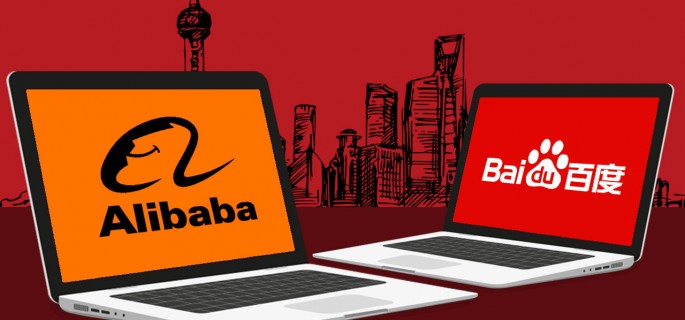Chinese regulator released that paid online searches will be treated as advertising and to be taxed

The recent regulations issued by China’s State Administration for Industry and Commerce on online advertising are likely to dent Alibaba’s and Baidu’s earnings, analysts believe. Baidu Inc is set to announce its second quarter of fiscal year 2016 (2QFY16) earnings results on July 25, 2016.
The Chinese Internet giant has already announced that it expects its 2QFY16 revenues to remain on a lower side amid increasing regulatory scrutiny into the health care sector and related advertising segment, eventually weighing on the company’s advertising revenues.
Baidu expects its quarterly revenues to remain between $2.807 billion (18.100 billion yuan) and $2.823 billion (18.200 billion yuan), compared to previously released guidance of $3.119 billion (20.110 billion yuan) to $3.192 billion (20.580 billion yuan). Baidu stock dropped more than 5% on that day, while it closed down 2.22% at $159.80 on Friday.
The company’s short interest has also climbed up as a result of recent cyber controversies. For the first 15 days of June, Baidu reported short interest of about 9.11 million, a four-month high compared to the previously reported figure of 8.83 million. Its short interest ratio stands at 2.49 days, implying that investors will need another two days to cover their short position.
Earlier on Friday, the Chinese regulator released new guidelines, indicating that “From September, paid searches will be treated as Internet advertising for the first time and that revenue could be subject to an additional 3 percent tax.” The newly issued broad guidelines, covering a variety of segments ranging from email ads, electronic advertising, embedded links, videos, images and paid-search results, are issued with the aim of eliminating misleading and false practices.
The policies also imposed a restriction on online ads related to tobacco and medicines; while advertisements on pesticides, medical supplies, and health products will require the approval from the Chinese government before being placed on the internet.
The tightening regulatory procedure came after the death of a Chinese college student back in April 2016, suffering from a rare form of cancer. The 21-year old college student Wei Zexi used Baidu’s sponsored links to find a treatment for the disease. However, the medical treatment for synovial sarcoma, an unusual type of tissue cancer, wasn’t authentic leading to the death of the student.
Since then, the company has been severely criticized from both the users and media, forcing the regulators to quicken the efforts to regulate online advertising practices. However, the Chinese search giant is ready to comply with all the changes and work hand-in-hand with the government’s regulator.
Baidu states: “The implementation of and compliance with new regulations could take place over a prolonged period of time. The Company notes that high quality medical customers who have reduced or delayed spend would likely be compliant with new regulations over time. As such, the Company expects spend from these customers to recover gradually.”
Analysts opine that the new online advertising policies will also affect the social-networking sites and e-commerce platforms, where paid ads and e-mail ads are practiced regularly. For example, Alibaba’s largest e-commerce platform Taobao, will also fall under the recent regulations. Similarly, 58.com and Sohu.com, another e-commerce platform in China will also be facing regulatory tightening.
Alibaba Group told Bloomberg: “That if its pay-for-performance ads were charged a 3 percent fee, the impact of on its margins would be in the low-single-digit range as its revenue channels are becoming more diversified.” Analysts at Daiwa Capital also forecasted Alibaba’s revenue to decline by about 50% in 1QFY17. Alibaba stock closed down 0.45% at $78.99 on Friday. However, the company’s shares were in the green during pre-market hours today, up 0.65%.
According to several analysts, the move would ensure a much cleaner and healthy online environment; however, others have termed the policies overdone given the rapid evolution of internet businesses. Some analysts have opined that the increase in taxes will likely hit the company’s bottom lines, as paid content constitutes a great portion of internet firms’ online advertising revenue. However, they have claimed that the stricter guidelines were necessary amid a significant increase in illegal activities, which demanded stricter measures.
According to China’s Commerce ministry official Zhang Guohua, “The laws will be revised as the industry develops.” In addition, he added, “The laws apply to all forms of platforms.” Though the Chinese government’s policies may likely dent the companies’ profits, both Alibaba and Baidu have assured their full participation in ensuring a user-friendly online platform. Robin Li, Baidu’s Chief said, “Baidu is keen to assist in the development of a healthy, safe, and trustworthy online and offline ecosystem. This is likely to bring in long-term benefits and rewards for Baidu.”
Moreover, Alibaba Group has also stated that it is reviewing the new policies and is ready to fully comply with them.
Source: China Business News




























